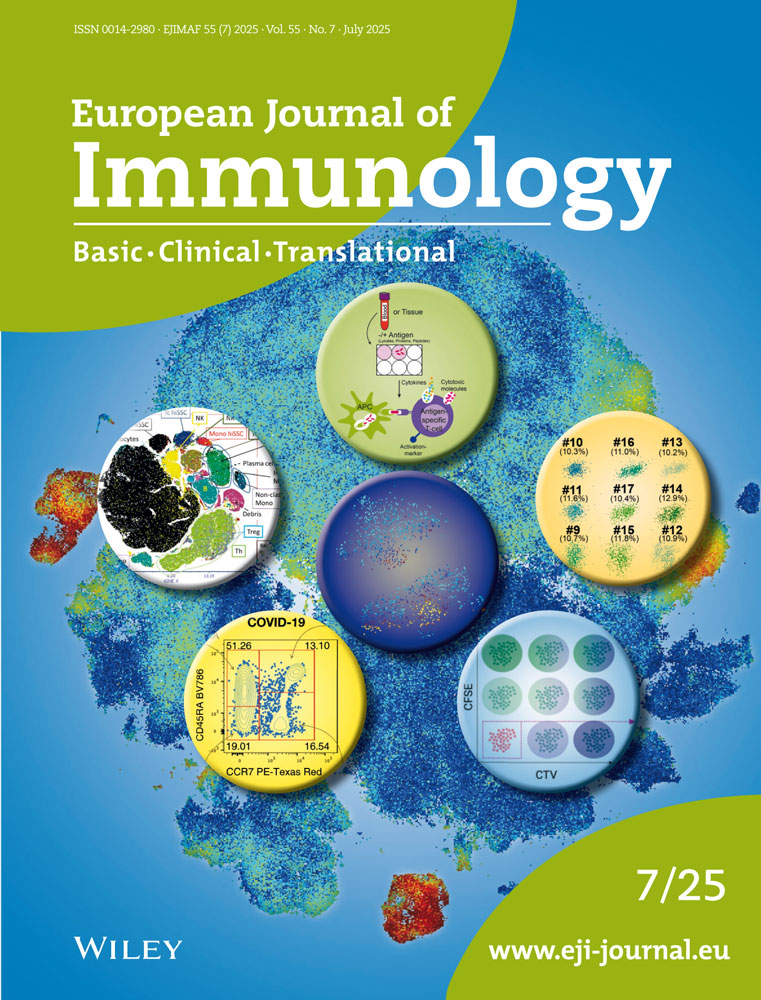Antigen-independent responsiveness to interleukin-4 demonstrates differential regulation of newborn human T cells
Abstract
The low incidence of graft-versus-host disease following clinical use of umbilical cord blood compared to adult bone marrow as a source of stem cells for bone marrow reconstitution, leads to questions concerning the level of immunocom-petence of newborn T cells. The maturation and functional status of newborn CD4+ T cells, which are almost exclusively CD45RA+ naive T cells, compared with their adult phenotypic counterparts, is poorly understood. We examined the proliferative response to mitogens and cytokines of CD4/CD45RA+ T cells from adults and newborns, with and without accessory cells. Newborn CD4/CD45RA+ T cells demonstrated a distinct proliferative response profile which was determined by the number of accessory cells present in co-cultures with various stimuli. Newborn CD4/CD45RA+ T cells were particularly responsive to interleukin (IL)-4, IL-4 plus anti-CD2 monoclonal antibodies (mAb) and IL-4 plus phytohemagglutinin (PHA), whereas adult CD4/CD45RA+ T cells were unresponsive under similar conditions. The mitogenic responses of newborn and adult CD4/CD45RA+ T cells to PHA and anti-CD2 mAb, which were equivalent, were directly proportional to the number of accessory cells present, whereas the responsiveness to cytokines was inversely proportional to the number of co-cultured accessory cells. Anti-CD2 responses were much more sensitive to low numbers of accessory cells than PHA. The particular sensitivity of newborn CD4/CD45RA+ T cells to IL-4 represents an antigen-independent T cell activation response which could help promote a Th2 immune response resulting in the newborn.




